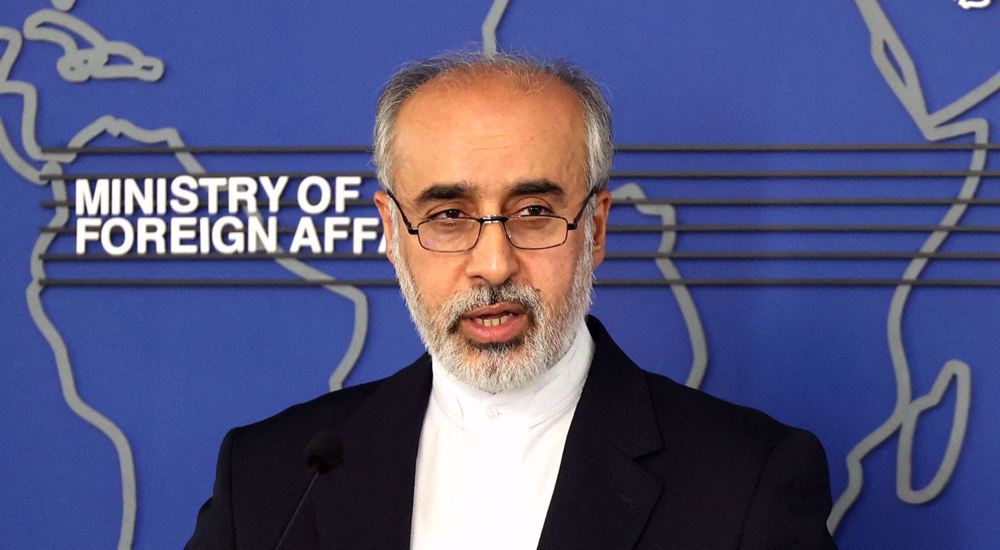The Foreign Ministry says the US and the UK are not in a position to accuse Iran of cyberspace violations, given their previous silence and even support in the face of such transgressions against the Islamic Republic.
The United States and the UK lack whatever right "to level such accusations against Iran in light of their silence and even support in the face of numerous previous cyberattacks against Iran's infrastructure," spokesman Nasser Kan'ani said in early Thursday.
The official cited the instance of Washington and London's mum on previous cyberattacks and even direct or indirect espousal of them against Iran's nuclear facilities.
Kan'ani warned against any "political adventurism" against Iran under such "ridiculous" accusations. He said the Islamic Republic was completely ready to deliver a "decisive, instantaneous, and regret-inducing response" to whatever plot that could start targeting the country.
The remarks came after the United States' National Security Council and the British Foreign Office echoed accusations thrown earlier by Albania against Iran of conducting cyberattacks against the southern European country's infrastructures.
Tirana said it was cutting its diplomatic relations with Iran based on the baseless claim. Tehran has denounced the Albanian government's decision as "shortsighted, injudicious, and lacking in foresight".
The Islamic Republic has identified the US, the Israeli regime, and the Mujahedin-e-Khalq Organization (MKO), an anti-Iran terrorist group that has been hosted by Albania since 2016, as the "third parties" that have propelled Tirana into taking the decision.
In 2010, US and Israeli intelligence agencies unleashed a computer worm called Stuxnet on Iranian uranium-enrichment plants in an attempt to disrupt Iran’s peaceful nuclear energy program.
The Washington Post reported two years later that the US National Security Agency (NSA), its spy service CIA, and Israel’s military had worked together to launch Stuxnet against Iran’s nuclear facilities.
/129
The United States and the UK lack whatever right "to level such accusations against Iran in light of their silence and even support in the face of numerous previous cyberattacks against Iran's infrastructure," spokesman Nasser Kan'ani said in early Thursday.
The official cited the instance of Washington and London's mum on previous cyberattacks and even direct or indirect espousal of them against Iran's nuclear facilities.
Kan'ani warned against any "political adventurism" against Iran under such "ridiculous" accusations. He said the Islamic Republic was completely ready to deliver a "decisive, instantaneous, and regret-inducing response" to whatever plot that could start targeting the country.
The remarks came after the United States' National Security Council and the British Foreign Office echoed accusations thrown earlier by Albania against Iran of conducting cyberattacks against the southern European country's infrastructures.
Tirana said it was cutting its diplomatic relations with Iran based on the baseless claim. Tehran has denounced the Albanian government's decision as "shortsighted, injudicious, and lacking in foresight".
The Islamic Republic has identified the US, the Israeli regime, and the Mujahedin-e-Khalq Organization (MKO), an anti-Iran terrorist group that has been hosted by Albania since 2016, as the "third parties" that have propelled Tirana into taking the decision.
In 2010, US and Israeli intelligence agencies unleashed a computer worm called Stuxnet on Iranian uranium-enrichment plants in an attempt to disrupt Iran’s peaceful nuclear energy program.
The Washington Post reported two years later that the US National Security Agency (NSA), its spy service CIA, and Israel’s military had worked together to launch Stuxnet against Iran’s nuclear facilities.
/129

